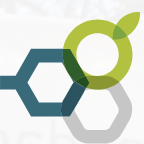Introduction
Hochschule Geisenheim University is located in Geisenheim, Hesse, Germany. It is a public university famous for its majors such as grape cultivation, winemaking and wine trade, and has a high reputation in the world wine industry.
Overview
Student size: No clear public information on the specific number of students has been found.
Major settings: There are 4 undergraduate majors and 5 graduate majors, covering wine-related majors such as grape cultivation, winemaking, wine trade, international wine business management, international wine economy, as well as majors in applied biology, horticulture and other fields.
History and establishment time
The school was established in 2013 and was formed by the merger of the Geisenheim School of Applied Sciences and the Geisenheim Research Center.
School strength
Faculty: It has a group of professional teachers with rich teaching and research experience in wine and related fields. They not only have a solid academic background, but also maintain close contact with the industry, and can provide students with cutting-edge professional knowledge and practical guidance.
Teaching resources: The school is equipped with advanced teaching facilities and laboratories, such as winemaking laboratories, tasting rooms, grape plantations, etc., providing students with good conditions for practical operation and scientific research. In addition, the school has established cooperative relationships with many wine companies and institutions to provide students with internship and employment opportunities.
Institutional nature
Public university.
Educational philosophy
Combination of theory and practice: Emphasis on combining theoretical knowledge related to wine with practical operation, through practical teaching, internships and scientific research projects, so that students can deepen their understanding and application of theoretical knowledge in practice, cultivate students' practical operation ability and problem-solving ability, so that students can better adapt to future career development.
Interdisciplinary training: Focus on interdisciplinary education mode, integrate knowledge from multiple disciplines such as grape cultivation, winemaking, wine trade, marketing, biology, chemistry, etc. into teaching, cultivate students' comprehensive literacy and interdisciplinary thinking ability, so that students can understand and solve complex problems in the wine industry from multiple perspectives.
International Vision: Actively expand international cooperation and exchanges, establish cooperative relations with universities and wine institutions around the world, carry out student exchange programs, joint research and other activities, provide students with a broad international perspective and exchange opportunities, and cultivate students' international competitiveness and cross-cultural communication skills.
Key laboratories and disciplines
Key disciplines: Grape cultivation and enology are the core key disciplines of the school, which have a high reputation and influence in Germany and even around the world. In addition, disciplines such as wine trade and economics and applied biology have also developed rapidly and become one of the school's advantageous disciplines.
Key laboratories: The school has a number of professional laboratories, such as wine analysis laboratories, microbiology laboratories, grape genetic breeding laboratories, etc. These laboratories are equipped with advanced instruments and equipment, providing an important support platform for the scientific research work of teachers and students, and have carried out in-depth research work in the quality analysis of grapes and wines, brewing process optimization, and pest and disease control.
Faculty
The school has 7 faculties, including the Department of Applied Biology, the Department of Economics, the Department of Horticulture, the Department of International Wine Economics, the Department of Viticulture and Enology, etc.
Ranking
The specific ranking of the school in the international comprehensive university rankings has not been found, but it has a high degree of recognition and professionalism in the education and research of the wine profession.
Expenses
Tuition fees: Tuition fees are about 500 euros per semester, and the specific tuition fees may vary depending on the major and course settings.
Living expenses: In Geisenheim, students' monthly living expenses are about 800-1000 euros, including expenses for accommodation, food, transportation, and school supplies.
Campus
Campus location: The campus is located in Geisenheim, a famous wine producing area in Germany, in the Rheingau region. It has a beautiful surrounding environment, surrounded by vineyards, and a strong cultural atmosphere, providing students with a good learning and living environment.
Campus facilities: The school has modern teaching buildings, libraries, laboratories, student dormitories, canteens and other infrastructure to meet students' learning and living needs. In addition, there are recreational areas and sports facilities on campus, providing students with a wealth of extracurricular activities.
-

Heidelberg University
-

University of Freiburg
-

University of Jena
-

University of Marburg
-

University of Rostock
-

University of Halle-Wittenberg
-

University of Bayreuth
-

Leipzig University
-

University of Tübingen
-

Humboldt University of Berlin
-

Mesoamerican University
-

Istmo University
-

Mariano Galvez University of Guatemala
-

Regional University of Guatemala
-

Galileo University
-

Francisco Marroquín University
-

Rafael Landívar University
-

University of the Valley of Guatemala
-

University of San Carlos of Guatemala
-

Technological Institute of Tlaxcala Plateau
-

Golfo University
-

Technological University of South Sonora
-

Technological University of Huejotzingo
-

Tizimín Institute of Technology
-

Chilpancingo Institute of Technology

